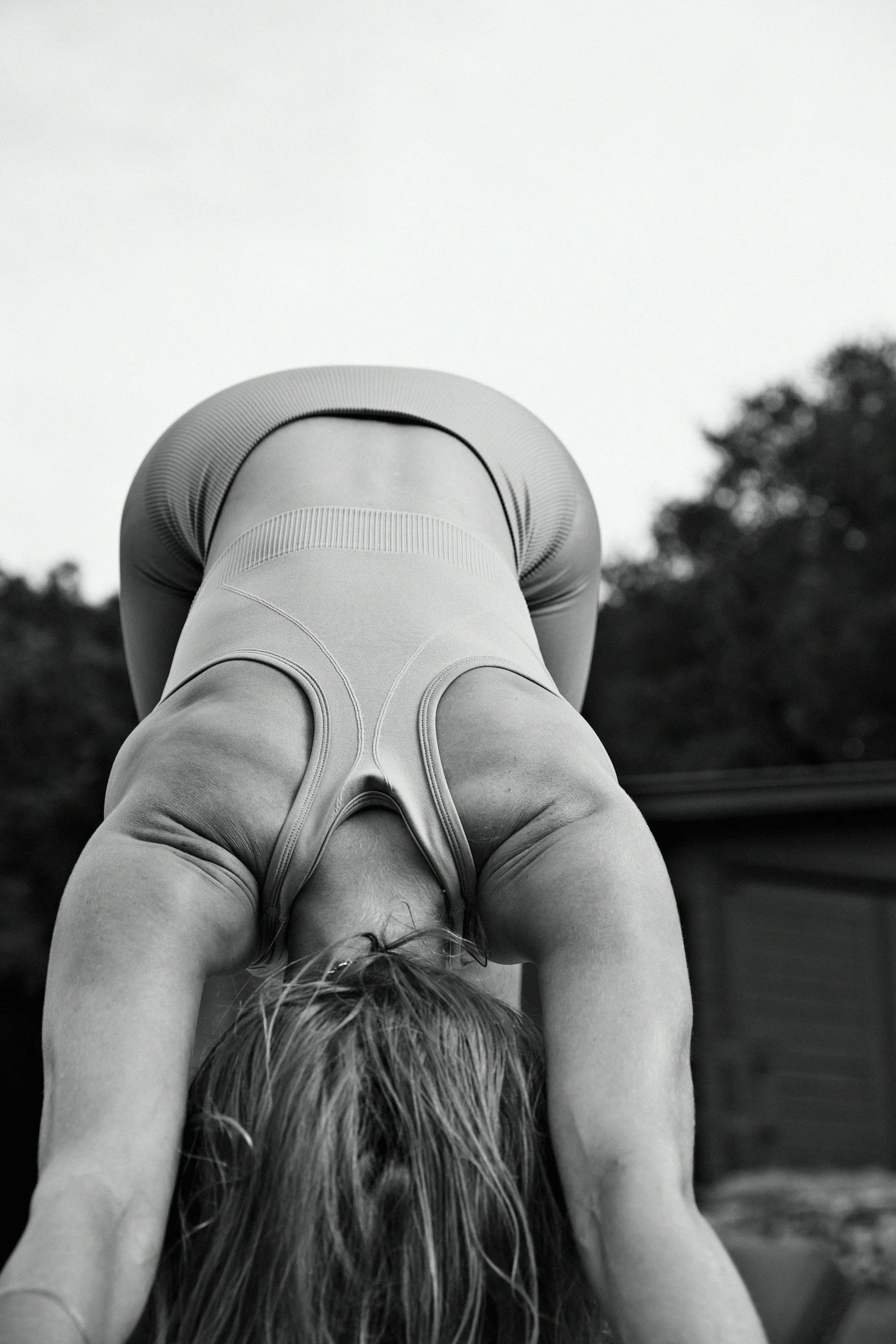The Importance of Quality Sleep and What to do When You’re Not Getting Enough
DISCLAIMER: This post may contain affiliate links. I may receive a small commission, at no extra cost to you, if you click through these links and make a purchase.
We all know that sleep is important. But how many of us actually feel like we are getting enough rest? Life gets busy, and sleep often takes a backseat to work, interrupted by kids or deprioritized in favor of some evening relaxation. But if you’re on a journey to improve your health and wellness, there’s one thing you absolutely cannot overlook: sleep.
Think of sleep as the foundation of everything else. No matter how clean you eat, how often you exercise, or how much water you drink, if you’re not getting enough quality sleep, it’s going to be much harder to feel good. Let’s take a deep dive into why sleep really matters— some simple tips to help you sleep better, and what to do when you’re not quite getting enough!
Why Sleep REALLY Matters
1. Sleep Fuels Your Body’s Recovery
If you’re active, whether through workouts or just a busy, demanding lifestyle, sleep is when your body recovers. During deep sleep, your muscles repair, tissues regenerate, and your body strengthens. This is especially important if you’re focusing on fitness or building muscle—rest is just as important as the workout itself!
If you’re skimping on sleep, you're essentially sabotaging your body’s ability to recover. This can lead to more soreness, fatigue, and even injury. Want to feel stronger and more energized? Make sleep your secret weapon.
2. Sleep Balances Your Hormones
Sleep isn’t just about rest—it’s a hormonal reset button. Sleep has a huge impact on hormones like cortisol (the stress hormone), ghrelin (which makes you feel hungry), and leptin (which tells you when you’re full). Without enough sleep, your body produces more cortisol, which can leave you feeling stressed, anxious, and craving unhealthy foods. You may also find it harder to manage your weight, since a lack of sleep can mess with your hunger cues.
Getting enough shut-eye helps keep your hormones in check, making it easier to manage stress, make healthier food choices, and feel more in control of your body.
3. Sleep Enhances Mental Clarity & Focus
Ever tried to power through a day on just a few hours of sleep? It's like trying to drive a car without enough gas. When you're sleep-deprived, your brain doesn’t function at full capacity. Your ability to focus, remember things, and think clearly takes a major hit.
But when you prioritize sleep, your brain works overnight, processing information, storing memories, and sharpening your mental clarity for the next day. If you want to crush your to-do list, stay productive, and make confident decisions, getting enough rest is key.
4. Sleep Supports Emotional Well-being
Feel like you're on an emotional rollercoaster when you don't get enough sleep? There’s a reason for that! Sleep helps regulate your mood and emotional responses. A lack of sleep can increase your sensitivity to stress and make you more likely to feel irritated, anxious, or down.
Adequate rest helps keep your emotional well-being in balance, making it easier to stay positive, handle challenges, and show up as the best version of yourself.
5. Sleep Boosts Your Immune System
Want to stay healthy and avoid the seasonal sniffles? Your immune system relies on sleep to function optimally. While you’re sleeping, your body produces cytokines—proteins that help fight off infection, inflammation, and stress. If you're not getting enough sleep, your immune system is weaker, making you more susceptible to illness.
So, if you're looking to keep your immune system strong and stay healthy all year long, quality sleep is a must.
6. Sleep Improves Your Skin Health
It’s not just about getting “beauty sleep” for the sake of looking well-rested—sleep actually helps regenerate and repair your skin. During deep sleep, your body produces growth hormone, which aids in cell regeneration and collagen production. That means better skin tone, fewer wrinkles, and a more youthful glow.
Lack of sleep? Not only can it make you look tired, but it can also lead to more breakouts, dullness, and premature aging. So, if you’re trying to keep your skin fresh and glowing, sleep is just as important as your skincare routine.
7. Sleep Increases Longevity
Here’s the kicker: not getting enough sleep isn’t just annoying—it can actually shorten your life. Studies have shown that chronic sleep deprivation is linked to serious health issues, like heart disease, diabetes, and even early death. But by prioritizing sleep, you're giving your body the best shot at living a long, healthy life.
Quality Sleep Tips
Now, let’s talk about how to make quality sleep happen. Sleep doesn’t always come easily—especially if you’ve got a busy schedule or a mind that won’t turn off. Here are some simple tips to help you get a better night’s sleep:
1. Stick to a Sleep Schedule
Try to go to bed and wake up at the same time every day—even on weekends. This helps regulate your body’s internal clock, making it easier to fall asleep and wake up naturally. Over time, your body will get used to the routine and you’ll feel more rested.
2. Create a Relaxing Bedtime Routine
Wind down at least 30 minutes before bed. Avoid screens (phone, TV, computer) because the blue light can mess with your melatonin levels. Instead, try reading a book, meditating, or practicing deep breathing. A calming routine signals to your brain that it’s time to rest.
3. Optimize Your Sleep Environment
Make sure your bedroom is a sleep-friendly sanctuary. Keep it dark, quiet, and cool. If noise is an issue, consider using earplugs or a white noise machine. Invest in a comfortable mattress and pillows to support a restful night.
4. Limit Caffeine and Alcohol
Caffeine can stay in your system for up to 8 hours, so try to avoid coffee, tea, or energy drinks in the afternoon or evening. Alcohol may help you fall asleep faster, but it disrupts the quality of sleep, so it’s best to limit it, especially close to bedtime.
5. Exercise Regularly
Getting regular exercise can improve the quality of your sleep. Just be mindful not to exercise too close to bedtime, as it may make you feel too energized to sleep. Aim for at least 30 minutes of moderate activity earlier in the day.
6. Watch Your Food Intake
Heavy meals right before bed can disrupt sleep, so try to eat dinner at least 2-3 hours before heading to bed. If you find yourself hungry, a light snack with a mix of protein and carbs, like a banana with almond butter, can actually help promote better sleep.
What To Do When Sleep Isn’t Perfect
Life happens—sometimes you just don’t get the full 7-9 hours of sleep your body craves. Maybe your kid had a rough night, or the stress of the day kept you awake. When your sleep duration or quality falls short, don’t stress out! There are still ways to help your body recharge and restore balance. Here are some simple strategies you can use to make up for lost sleep or improve your rest:
Take a Power Nap
A quick 20-minute nap can do wonders to refresh your mind and body. It’s long enough to give you a burst of energy but short enough to avoid sleep inertia (the groggy feeling you get after napping for too long). If you’re feeling drained during the day, try to sneak in a power nap—preferably before 3 p.m. to avoid interfering with your nighttime sleep.Embrace Non-Sleep Deep Rest (NSDR)
Non-Sleep Deep Rest is a term you might not be familiar with, but it’s a game-changer. It involves guided meditation or deep relaxation practices that help your body enter a restorative state—even if you’re not actually sleeping. NSDR can help lower stress, improve focus, and refresh you mentally when a full night of sleep just isn’t in the cards. A quick NSDR session, even just 10-15 minutes, can leave you feeling recharged and ready to tackle the day.Move Your Body
If you’ve had a rough night’s sleep, a gentle walk or some light stretching can help get your energy moving and shake off the sluggishness. Exercise helps improve circulation and can boost your mood, making it easier to push through the day, even when your sleep wasn’t ideal. Just keep it light—long, intense workouts might make you feel more exhausted if you're already sleep-deprived.Stay Hydrated
Sometimes a lack of sleep can leave you feeling sluggish, and dehydration often makes things worse. Drink plenty of water throughout the day to stay hydrated and help your body reset. It also supports your energy levels and focus, which will be helpful if you’re running on fewer hours of sleep.
Remember, one night of poor sleep won’t undo all your wellness progress. It’s about consistency over time, so focus on getting back on track the next night and integrating these rest-boosting habits into your routine. Your body is resilient, and with a little extra care, you can still feel great, even on the days when sleep doesn’t go as planned.
Ready to Prioritize Sleep in Your Wellness Journey?
Remember: sleep is the foundation of your wellness journey. If you’re looking to feel your best, recover quicker, boost your mood, and perform at your peak—make sleep a priority!






